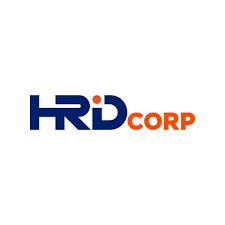e-Bulletin
2021
- This Tapak Selamat discusses several issues in relation to hazard working with or near live electric circuit and good working practices that can be implemented to ensure any work can be carried out safely.
pdf Tapak Selamat 1/2021 - Tapak Selamat presents findings of the Research on an online reporting of SHO KPI in construction industry
pdf Tapak Selamat 2/2021
Any Feedback and futher information on this analysis can be forwarded to This email address is being protected from spambots. You need JavaScript enabled to view it.orThis email address is being protected from spambots. You need JavaScript enabled to view it..
2020
- This Tapak Selamat is prepared for guiding and preparing DOSH officer on new regulations replacing BOWECS regulations. The new regulations are based on the CDM regulations (UK).
pdf Tapak Selamat 1/2020 - Tempat Kerja Bina Yang Selamat - This Tapak Selamat is published as an introduction to work at height.
pdf Tapak Selamat 2/2020 - Tapak Selamat - This Tapak Selamat presents analysis of construction workers fatalities that were reported in 2019 and its main facts. This information can be used as a guidance to improve enforcement and management of occupational safety and health in construction project. Feedback and futher information on this analysis can be forwarded to This email address is being protected from spambots. You need JavaScript enabled to view it. or This email address is being protected from spambots. You need JavaScript enabled to view it..
2019
- The Occupational Safety and Health (Noise Exposure) Regulations 2019 have replaced the Factories and Machinery (Noise Exposure) Regulations 1989. In conjunction with this, the Tapak Selamat proposes how these regulations can be implemented in the construction industry. This Tapak Selamat outlines the planning and implementation guidance of these regulations to the clients and builders, who involve in construction projects.
pdf Tapak Selamat 1/2019 - Mengawal bising di tapak pembinaan - This Tapak Selamat is prepared to gather feedback on several key issues from stakeholders in construction industry on the implementation of OSHCIM Guidelines.
pdf Tapak Selamat 2/2019 - Perlaksanaan Garis Panduan OSHCIM - This Tapak Selamat summarised key activities by BKTB throughout 2019 in promoting the OSHCIM Guidelines.
pdf Tapak Selamat 3/2019
2018
- Key principles of OSH Leadership
This article described 10 key principles that will help employer to achieve successful leadership and worker involvement, and hence encouraging OSH ownership.
- Mind Your Step
OSHA requires constructor as an employer, who creates and works with the workplace risks, to provide and maintain places of work and access/egress that are safe for his workers and person other than his employer. Safe means that there should be no risk of being run over by machinery, no risk of tripping/ slipping, no risk of falling from any height, no risk of objects falling on to people and other safety hazards, while working or using the access/ egress route in the construction site. This Tapak Selamat explains the significance of safe work environment, that contributes to 32.3% of accidents investigated by DOSH between 2012 to 2016. At the end, it briefly describes what the employer should do to ensure a good site order and safe work environment.
- OSH Strategic Plan 2018-2020: Construction Industry
The achievement in 2018 and target for 2019 of the OSH Strategic Plan are briefly described.
Bil 3/2018: OSH Strategic Plan 2018-2020: Construction Industry
2017
- Prevention Through Design
The concept of Prevention through Design is explained along with its implementation in selected countries in the world. The status of Guidelines on Occupational Safety and Health in Construction Industry (Management) is stated.
- Guide to the Client
Some short guidance for the client according to the recommendations in the Guidelines on Occupational Safety and Health in Construction Industry (Management) 2017.
- Construction Strategic Plan
The background, outcome and focus of the Occupational Safety and Health in Construction Industry Strategic Plan is briefly described.
Bil 3/2017: Occupational Safety and Health Strategic Plan: Construction Industry
2016
- Ladder
Common hazards while working with ladder with its control measure are described according to regulatory requirements and guidelines. Other issues described are approval of design and drawing of scaffold, issuance of JKJ 26 notice and red dust and bending fatigue in wire rope.
- Some Construction Safety Issues
Some issues related with construction site enforcement and regulatory requirements (appointment of safety and health officer and design approval of scaffold) are explained.
Bil 2/2015 : 6 Points to Prevent Formwork-Falsework Accident
- Accident Statistics
Accident statistics in construction industry in 2015 are presented and analysed along with the effect of incompliance to the OSH requirements.
2015
- Blasting in Construction Site
There are specific regulatory requirements, under Part XV, BOWECS related with blasting in construction site. The contractor is required to appoint designated person and shotfirer to ensure safe blasting operation.
- Preventing Falsework Accident
There are six fundamentals that require specific attention in order to prevent falsework accident. These fundamentals are combination of essence of the regulatory requirements and lessons learnt from forensic accident investigation
Bil 2/2015 : 6 Points to Prevent Formwork-Falsework Accident
- Excavation Safety
Common hazards of excavation works are presented along with practical guidance on how to manage them. Most of the contents are published as Guidelines on Occupational Safety and Health in Construction Industry (Excavation) 2017.














